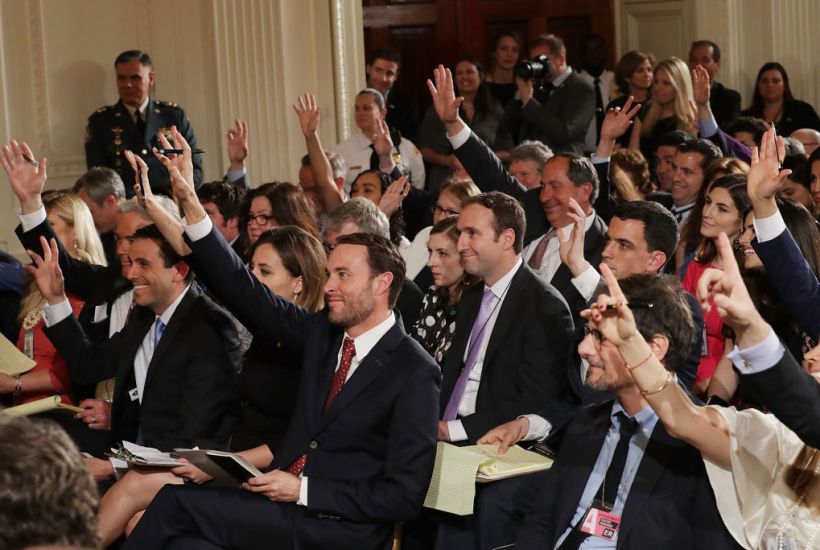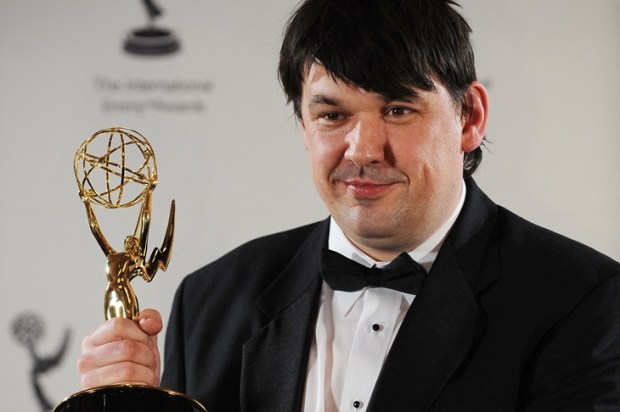I was sitting at my desk, ruminating on what to make of the whole Michelle Wolf fiasco, when my 14-year-old son came in and said, “Hey dad, can you read something I’ve written? It’s a poem!” Well, something like this hardly ever happens so my interest was piqued. I said, “Of course, give me a look.” And this is what he wrote:
I Am Words
I have killed more men
Than the finest of Generals
I have cursed more minds
Than any evil spirit
I have stolen more hearts
Than any thief ever could
But I have saved more lives
Than the most gifted doctor
I have comforted more hearts
Than any mother’s care
I am words
Through me the world was made
And through me it is also sustained
I can change you
for good, or maybe bad
But that is for you to decide
Now, he is a child who is passionate about sport, “an despises reading” (sic), so I was impressed. But it also struck me as being pertinent to the subject at hand. Words can either build up or destroy. And both sides of the American political divide have concluded that Michelle Wolf’s use of the words did the later rather than the former.
Lance Morrow has written a brilliant piece in the City Journal where he argues that much of modern journalism has lost its ‘soul’. And since this is so it’s probably ‘not a bad idea’ for the White House Correspondent’s Dinner to be abolished:
People have been suggesting that for years now, ever since the correspondents’ employers started inviting their advertisers and friends-in-power to join the tables as guests, and—worse—embellished the lure with celebrities, Hollywood stars, and occasional freaks and oddments in the scandal du jour. The dinner and its lavish satellite parties became a celebration of the Bitch Goddess, and the Bitch God, too, and of lesser bitches and demons and novelties. It became a tent show, the circus arriving every April in a hick town, bringing elephants. Journalism’s motto is supposed to be Truth; Washington journalism’s black-tie evening out came to be contaminated with quite a lot of falsehood. Conde-Nast’s Vanity Fair threw extravagant parties, perfectly though unconsciously modelled upon the empty original—John Bunyan’s Vanity Fair—where, as you will recall, people were mean and venal, and salvation was not to be found.
Morrow then goes on to say:
There is a good deal of sheer hysteria in the Left’s reaction to Trump. He knows it, and manipulates it; he plays his enemies’ hysteria like a calliope. The whirlwind is centrifugal. Almost everyone who defended Wolf’s performance did so on the basis that Trump’s awfulness (lies, bad behaviour, etc.) justifies any counter-awfulness; in essence, All is Permitted. That includes Wolf’s relentless, Jacobin, mirthless “comedy.” Trump’s enemies do not see that they have been led into a trap. They cannot see it because Americans’ minds have been geared for many years, since the sixties, to the confining and lesser and squalid realm of mere politics—race politics, gender politics, everything-else politics—and as a result, neglect larger and more interesting and more productive worlds of thought.
This is what journalists, especially the likes of the cosmopolitans of The Economist, republished in The Australian, failed to appreciate when they argued:
In open societies, self-censorship — in the name of civility, careerism or access preservation — is a much greater threat to the media than outright repression. The only person owed an apology here is Wolf, for being scolded by the very people who invited her to speak, and who purport to defend a “vigorous and free press”.
However, there is an enormous difference between free-speech and hate-speech. Free-speech is about the respectful communication of ideas—even deeply offensive ideas—but relayed to the other person in a respectful and civilised manner. Hate-speech, though, couldn’t care less about the people being spoken to and so any string of insulting, vulgar language will do. And claiming that “you were only joking” doesn’t cut it, when everyone in the room understands that you are deadly serious.
I’ve been reflecting on the words Wolf used in relation to some words uttered by Jesus. In the Gospel of Matthew, he is recorded as saying:
Watch out for false prophets. They come to you in sheep’s clothing, but inwardly they are ferocious wolves. By their fruit you will recognise them. (Matt. 7:15-16)
In the parallel passage, recorded in Luke, Jesus is recorded as also giving the following qualification:
The good man brings good things out of the good stored up in his heart, and the evil man brings evil things out of the evil stored up in his heart. For out of the overflow of his heart his mouth speaks. (Lk. 6:45)
What, then, do Wolf’s words—you can probably already see where this is going—reflect about the condition of her heart? It seems she is using the “sheepish” cover of a comedian to be, in fact, someone quite different. Which undoubtedly explains why so many of those at the Dinner had the courage to get up and walk.
Since words have such enormous power, journalists, clergy, politicians, educators—and especially entertainers—who are some of the major participants in public discourse, must be conscious that words can build or break, wound or heal. The proverb is true: ‘The words of the reckless pierce like swords, but the tongue of the wise brings healing.’
So, I think my teenage son was right. Words do matter. And it is up to us to decide—with thoughtful premeditation—how we use them.
Mark Powell is the Associate Pastor of Cornerstone Presbyterian Church, Strathfield
Got something to add? Join the discussion and comment below.
Got something to add? Join the discussion and comment below.
Get 10 issues for just $10
Subscribe to The Spectator Australia today for the next 10 magazine issues, plus full online access, for just $10.


























Comments
Don't miss out
Join the conversation with other Spectator Australia readers. Subscribe to leave a comment.
SUBSCRIBEAlready a subscriber? Log in